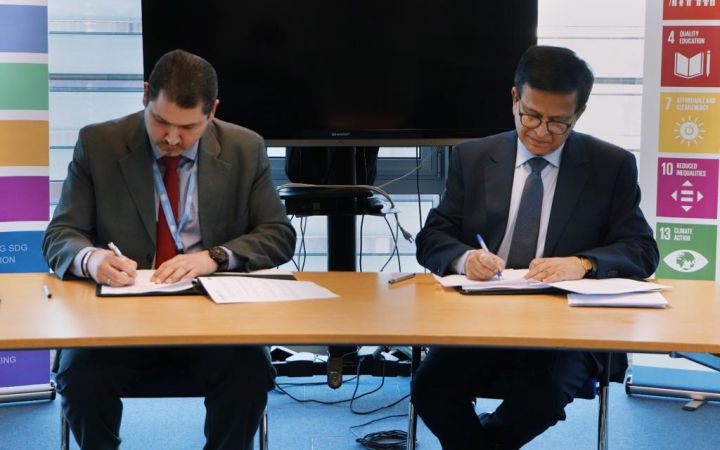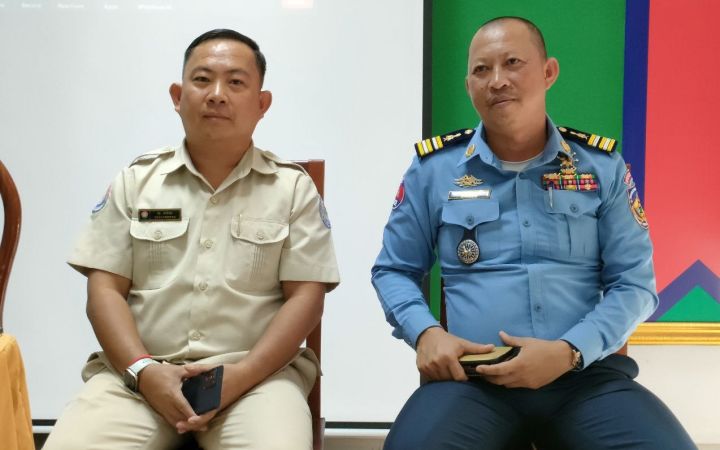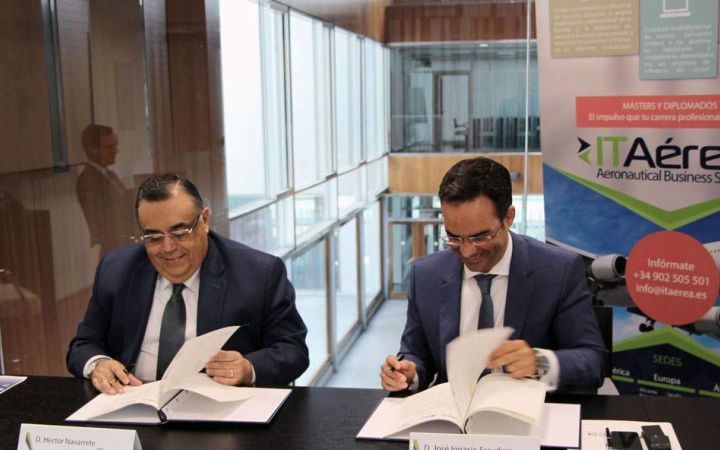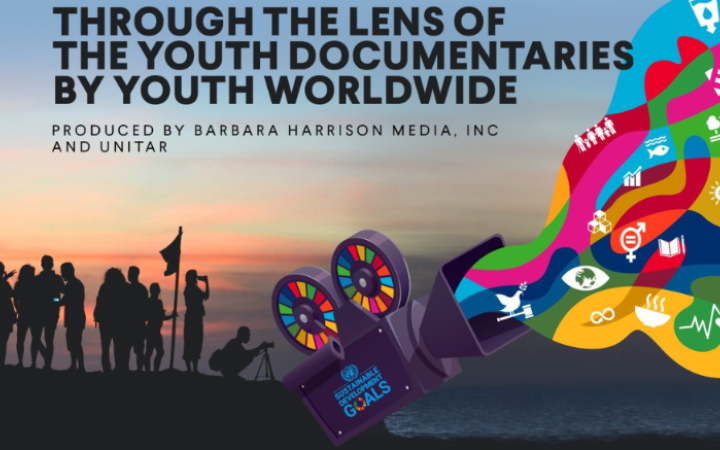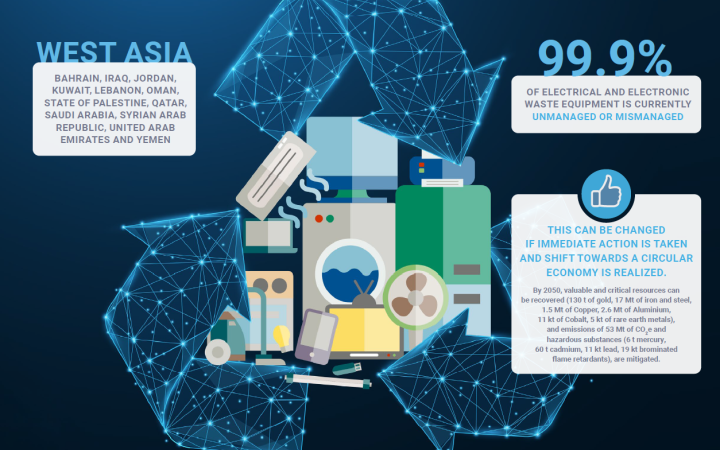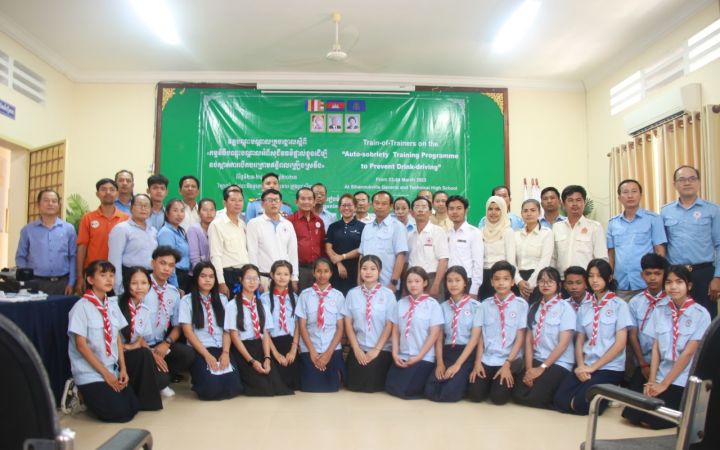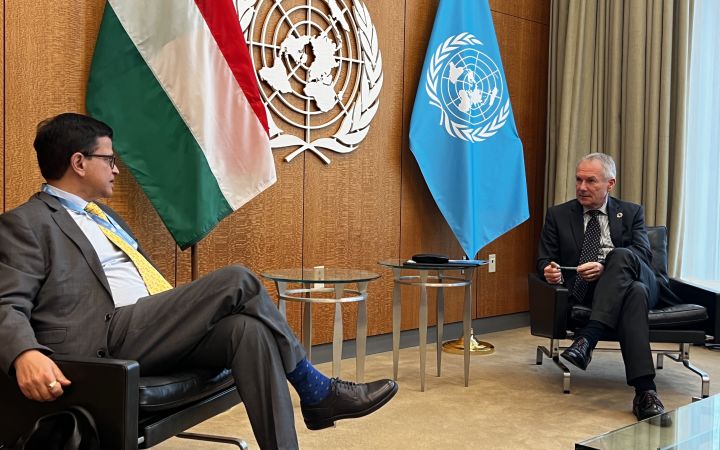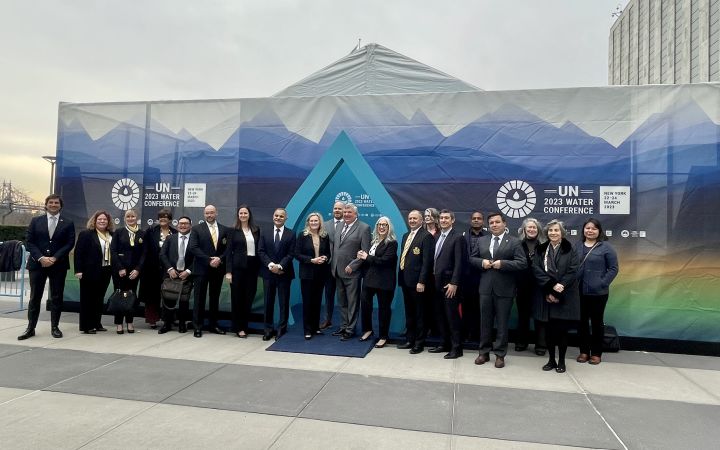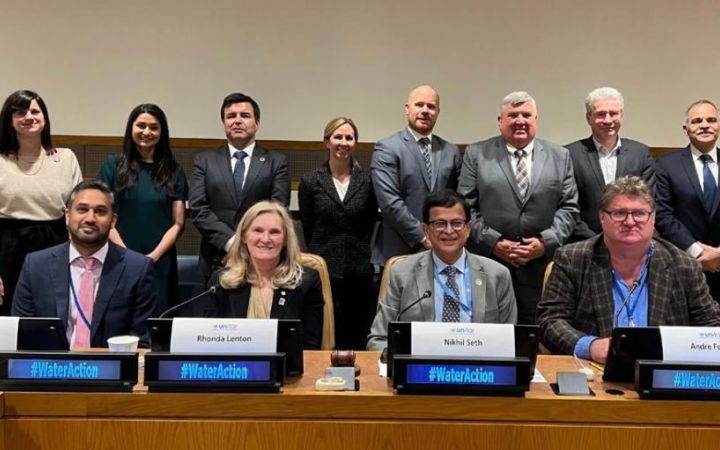Displaying 711 - 720 of 1758
UNITAR (the United Nations Institute for Training and Research) is delighted to announce its partnership with ISRI (Instituto Superior de Relaciones Internacionales "Raúl Roa García"). On Wednesday, 5 April 2023, both parties met at the UNITAR headquarters in Geneva to sign a Memorandum of Understanding (MoU) on both English and Spanish.
5 April 2023, Siem Reap, Cambodia - On March 30 and 31 a successful Training of Trainers (ToT) on the Autosobriety Training Programme to Prevent Drink-Driving was conducted in the Siem Ream province of Cambodia.
31 March 2023, Merida, Mexico - The Executive Director of CIFAL Merida in Mexico, Héctor Navarrete Muñoz, and the Director of the ITAérea Business School, Mr José Ignacio Escudero, sealed the extension for another 4 years of the partnership that has united these institutions since 2017.
30 March 2023, Geneva, Switzerland - To give the youth the voice they deserve, The United Nations Institute for Training and Research is partnering with Barbara Harrison Media and Kids Speak Out to launch the project: Through the Lens of the Youth Documentaries by Youth Worldwide. Allowing youth to express the importance of Sustainable Development Goals through video creation.
30 March 2023, Geneva, Switzerland - The joint UNEP-UNITAR 2050 Electronic and Electrical Waste Outlook in West Asia provides two contrasting future scenarios for e-waste management in Bahrain, Iraq, Jordan, Kuwait, Lebanon, Oman, State of Palestine, Qatar, Saudi Arabia, Syrian Arab Republic, United Arab Emirates, and Yemen.
31 March 2023, Sihanoukville, Cambodia - On March 23 and 24 a successful Training of Trainers on the Autosobriety Training Programme to Prevent Drink-Driving was conducted in the Sihanouk province of Cambodia.
28 March 2023, Hiroshima, Japan – Ahead of the 2023 G7 Summit in May, the United Nations Institute for Training and Research (UNITAR) will host a youth panel “Hiroshima G7: Voice of the Youth – Hiroshima for Global Peace Agenda”. Seven youths living in Hiroshima, one from each G7 country, will share their experiences in the city and discuss Hiroshima’s role in promoting global peace. This event will be co-organized with UNITAR Association.
24 March 2023, New York, USA – The Executive Director of the United Nations Institute for Training and Research (UNITAR), Mr Nikhil Seth, visited New York from the 20th to the 24th of March 2023. With the 2023 UN Water Conference being held this week, the first in a generation, Mr Seth was able to attend its Opening Session, as well as the UNITAR’s side event on water and oceans entitled “Promoting a Water Culture Through Learning & Action”. The event brought together business executives from the five largest beverage companies in the world and sought to provide a venue for a collaborative partnership focused on delivering innovative training and building human capacities on pressing water-related issues at a large scale.
24 March 2023, New York, USA – In the framework of the UN 2023 Water Conference UNITAR hosted the side event “Promoting Water Culture through Learning & Action”. The overall objective of the side event is to mobilize support and expertise to deliver innovative training and build human capacities on pressing water-related issues at a large scale.
22 March 2023, New York, USA – Between 22-24 March 2023, The UN 2023 Water Conference reconvenes after nearly 50 years since the 1977 UN Water Conference. The Conference serves as an opportunity for Member States, UN entities, and stakeholders to share commitments that aim to contribute to the implementation of water-related SDGs and associated targets. These voluntary commitments will be collected in the Water Action Agenda to accelerate progress in the second half of the Water Action Decade 2018-2028 and the second half of the 2030 Agenda for Sustainable Development.


